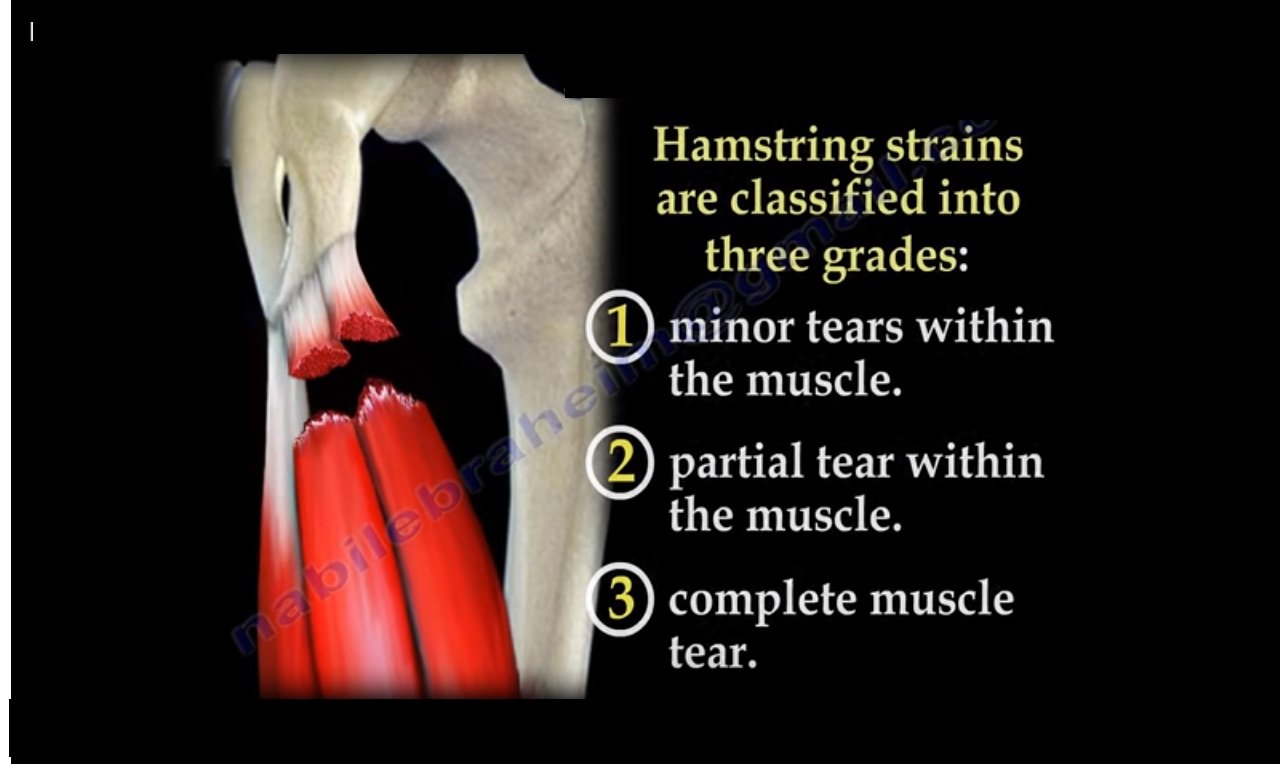Courtesy: Prof Nabil Ebraheim

Educational video describing sprain or tear of the proximal hamstrings.
The hamstrings are a group of muscles located on the back of the thigh.
Muscles of the hamstrings are:
•Biceps femoris (long head and short head)
•Semitendinosus.
•Semimembranosus.
The proximal end of the hamstring muscles originates from the ischial tuberosity in the rear pelvis.
The muscles of the hamstring are all innervated by the sciatic nerve. The hamstring muscles are the major flexors of the knee and also aid in hip extension.
Injuries to the hamstring muscles occur proximally and are a common source of chronic pain and injury in athletes. It is often referred to as hurdler’s injury. Athletes who attempt to clear hurdles are prone to injury due to excessive hamstring tension.
Hamstring strains are classified into three grades:
•Minor tears within the muscle
•Partial tear within the muscle
•Complete muscle tear
- Most hamstring injuries in adults occur at the musculocutaneous junction but injury may also occur at the insertion into the ischial tuberosity.
- Severe hamstring injuries where the tendon tears away from a fragment of bone are called avulsion injuries.
- Avulsion injuries are not common and typically occur in patients who are young, skeletally immature athletes.
- Patient will complain of sharp pain in the back of the thigh with popping or tearing of the muscle.
- There may be ecchymosis of the posterior thigh with a palpable mass in middle of the
- Hamstring injuries are usually diagnosed by MRI.
- In case of strained or pulled hamstring can occur due to insufficient warm up time before activity.
- Treatment includes rest, ice, compression bandage, elevation and physiotherapy. In case of avulsion injury.
- Surgery is done in complete avulsion injuries with muscle retraction. Usually done early. Make the incision, find the retracted muscle and protect the nerve.
- Use anchors in the ischium to repair the tendon to the tuberosity. In case of bony avulsion, screw may be used in severe cases.
Leave a Reply